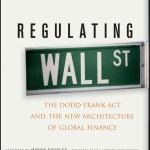This post comes to us from John J. Cannon, a partner in the Executive Compensation and Employee Benefits Group at Shearman & Sterling LLP, and is based on a Shearman & Sterling Client Memorandum by Barnabas W. B. Reynolds, Linda E. Rappaport and Sam Whitaker. The complete memo, including the Appendix, can be found here.
On 17 December 2010, the UK’s Financial Services Authority (“FSA”) issued the final form of the revised Remuneration Code (the “Code”). [1] The Code introduces significant restrictions on the way in which remuneration policies and structures are operated within financial institutions in the UK and beyond. The Code builds upon international standards set by the Financial Stability Board at a European level and goes beyond those standards in a number of key respects.
In this briefing, we have set out an overview of the background to the Code, a summary of the key provisions of the final form of the Code, as well as our commentary on some relevant provisions of the final-form guidance issued by the Committee of European Bank Supervisors (“CEBS”) on 10 December 2010. Finally, at the end of this briefing, we have focused in depth on some specific issues which may be of particular interest to our clients.
